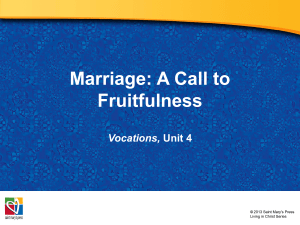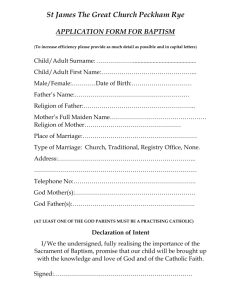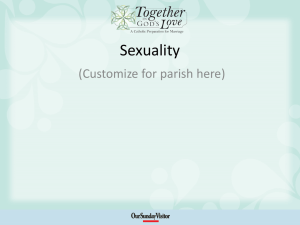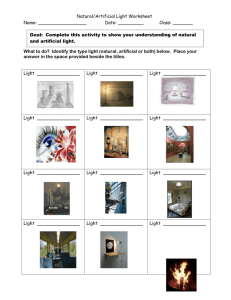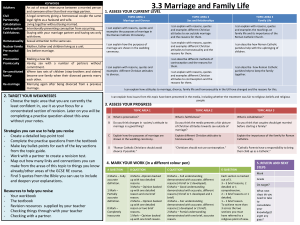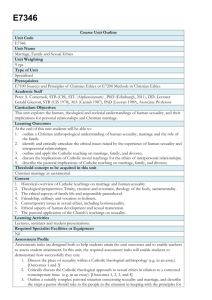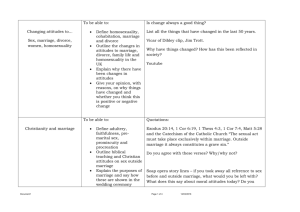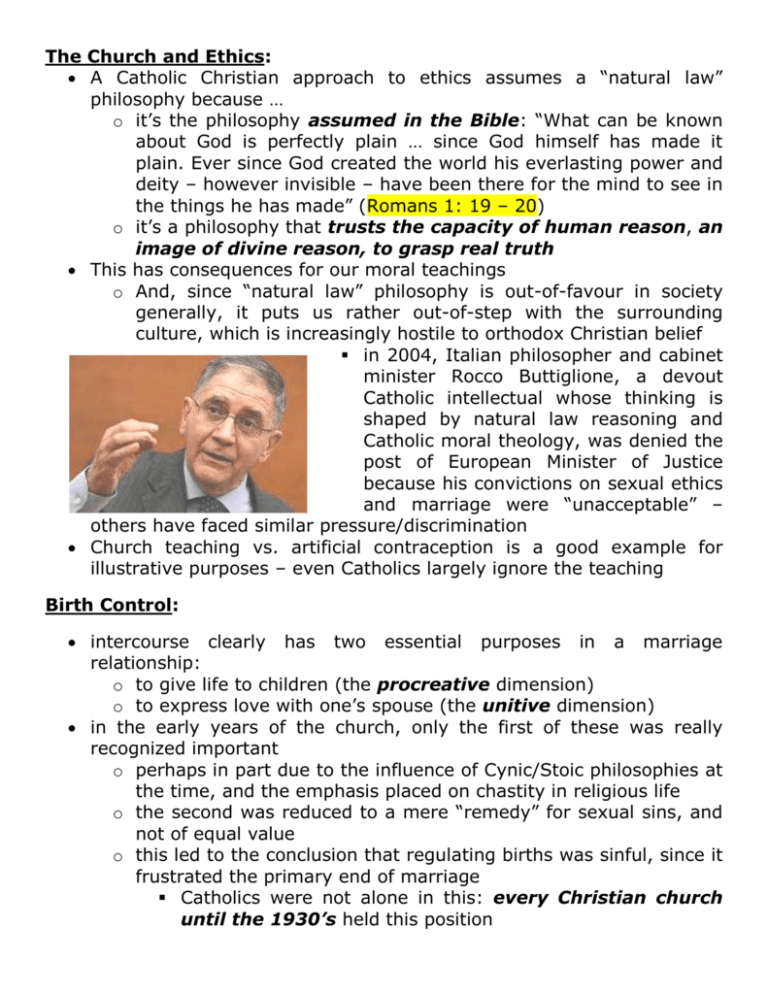
The Church and Ethics:
A Catholic Christian approach to ethics assumes a “natural law”
philosophy because …
o it’s the philosophy assumed in the Bible: “What can be known
about God is perfectly plain … since God himself has made it
plain. Ever since God created the world his everlasting power and
deity – however invisible – have been there for the mind to see in
the things he has made” (Romans 1: 19 – 20)
o it’s a philosophy that trusts the capacity of human reason, an
image of divine reason, to grasp real truth
This has consequences for our moral teachings
o And, since “natural law” philosophy is out-of-favour in society
generally, it puts us rather out-of-step with the surrounding
culture, which is increasingly hostile to orthodox Christian belief
in 2004, Italian philosopher and cabinet
minister Rocco Buttiglione, a devout
Catholic intellectual whose thinking is
shaped by natural law reasoning and
Catholic moral theology, was denied the
post of European Minister of Justice
because his convictions on sexual ethics
and marriage were “unacceptable” –
others have faced similar pressure/discrimination
Church teaching vs. artificial contraception is a good example for
illustrative purposes – even Catholics largely ignore the teaching
Birth Control:
intercourse clearly has two essential purposes in a marriage
relationship:
o to give life to children (the procreative dimension)
o to express love with one’s spouse (the unitive dimension)
in the early years of the church, only the first of these was really
recognized important
o perhaps in part due to the influence of Cynic/Stoic philosophies at
the time, and the emphasis placed on chastity in religious life
o the second was reduced to a mere “remedy” for sexual sins, and
not of equal value
o this led to the conclusion that regulating births was sinful, since it
frustrated the primary end of marriage
Catholics were not alone in this: every Christian church
until the 1930’s held this position
over time, the love of the couple came to be recognized as something
more noble
o we came to speak of the primary and secondary goods of
marriage, with children being the first, and love the second
o this language lasted through the 1950’s, as did the teaching
against contraception
it was recognized, however, that planning a family by taking
advantage of natural periods of infertility was acceptable,
and that couples who were infertile were still validly married
Vatican II (1963-65) recognized both of the “goods” of marriage, but
did not rank them; they were seen to be equally important in a
Christian marriage
o It is for parents to decide when to have children, and how many
o The question whether artificial contraceptives might be used was
deferred to a special committee
Pope Paul VI sided with the minority report of the commission which
reaffirmed the traditional teaching that both the unitive and
procreative dimensions of intercourse must always be present
to preserve the essential meaning of the act, for various reasons
o He was concerned with a “contraceptive mentality” which would
lead to:
A general lowering of morality
An assault on the dignity of women
Governments coercing people to plan families
Promotion of a “mechanized” view of the human body
Many would argue that history has proven the Pope’s
concerns were not unfounded
This teaching has consequences:
o Only natural methods of family planning are considered morally
acceptable by the Church, since they preserve the connection
between both essential dimensions of intercourse (Billings,
Sympto-thermal, Serena, etc.)
o Artificial contraception is not accepted except in unusual
circumstances (condoms, diaphragms + spermicides, “The Pill”,
etc.)
o IUD’s & RU486 (“morning-after pill”) induce abortion, and fall into
another class altogether
Other areas of morality: Given the above, what do you think the
Church would say about these? (Discuss)
o In-vitro fertilization
o Artificial insemination
o Homosexual activity

